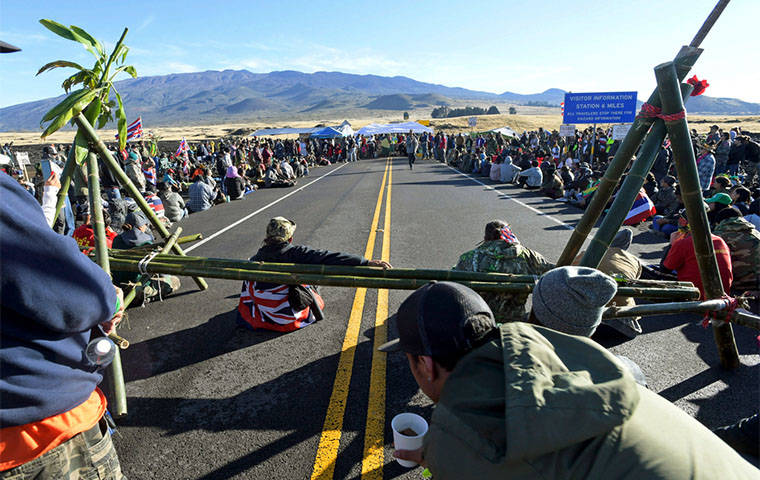HONOLULU — A panel of lawmakers on Monday passed a resolution calling for the governor to convene a Native Hawaiian reconciliation commission, a step that comes after protests blocking the construction of one of the world’s largest telescopes.
The protests put a spotlight on deep-seated grievances over the treatment of Hawaii’s indigenous people. The House speaker sponsored the resolution after discussions with the governor, said Rep. Ryan Yamane, a Democrat and the chairman of the House Water, Land and Hawaiian Affairs Committee.
The goal is to “foster more dialogue, to bring a sense of opportunity for people to talk and maybe address some of the past wrongs,” Yamane said after his committee passed the measure.
The resolution next goes to the full House for a vote. Senate President Ron Kouchi has introduced a similar resolution to the Senate.
But several leaders of protests against the Thirty Meter Telescope planned for the summit of Maunakea, a spot many Native Hawaiians consider sacred, expressed skepticism that their concerns would be reflected by any such commission.
The measure asks the governor to invite people to serve on the commission, which would examine “a reconciliation process” relating to issues of importance to “the Native Hawaiian people, the state of Hawaii and the United States of America.” It said that past efforts to apologize for the U.S.-backed overthrow of the Hawaiian monarchy and establish a new relationship of respect and trust with Native Hawaiians have met with “varying levels of success.”
The resolution asks the commission to report to lawmakers any proposed legislation regarding land use and stewardship, the environment, economy, culture and science.
The resolution originally assigned the commission to address Maunkea first before other issues, but the committee deleted that language to allow the body to determine its own priorities.
Ilima Long, a leader of the movement blocking the telescope and a University of Hawaii graduate student in political science, testified to lawmakers that the measure’s origins “had pro-TMT all over it.”
“It’s totally flawed already. It’s going to be really difficult to gain the trust of the Native Hawaiian community. I know I don’t trust it already,” she told the committee.
Walter Ritte, who was among the Native Hawaiian elders arrested for blocking the road to Maunakea’s summit last year, said instead of forming a commission, the governor and House and Senate leaders need to meet with the head Maunakea protesters and talk about restructuring the management of the mountain.
Once that is done, Ritte said, whoever is managing the mountain can decide whether the telescope will be built. The commission is not the right forum, he testified.
“The Hawaiians have been through this process many times and have come out the losers. Every time you form some kind of a committee, people count votes before they even start and you know the results that’s going to happen before it ends,” Ritte said. “So there is no trust.”
Attorney General Clare Connors said New Zealand, Canada and South Africa each offered good models for reconciliation commissions.
“This commission will be challenged with fleshing out how it can work here in our community, given our historical structures and issues and complexities,” she told lawmakers.



